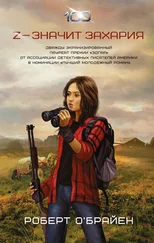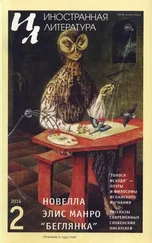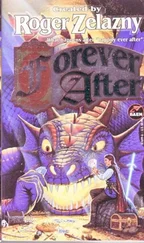When he got to the store he went in, and when he came out I was amazed—I hardly recognized him. The wrinkled coverall was gone; he was dressed in a whole new outfit—khaki drill slacks, very neat, a blue work shirt, even new work shoes and a straw cap. (My clothes.) But he really looked like a different person, and quite nice. For one thing, with his hair and beard trimmed and now neatly dressed, he looked a lot younger, though still much older than I. I would guess maybe thirty or thirty-two.
He walked on down the road, heading south towards the far end of the valley, towards the gap. He looked around him as he went; he was curious about everything, but he did not slow down much until he reached the culvert. At that point the small stream, having flowed into the pond and out again, and meandered along through the meadow, runs into a rise (the beginning of the end of the valley, I suppose), bears right, and is joined by Burden Creek.
He stopped there. I think it dawned on him then for the first time that there were two streams, and that the pond was not formed by Burden Creek. And here, if you look at them closely where they join, the difference between them becomes plain. I have done it many times. Even in the last few feet, the small stream has life in it—minnows, tadpoles, water bugs (skippers), and green moss on the rocks. Burden Creek has none at all, and after they merge, downstream all the way to the gap and out, the water is clear and dead.
I cannot be sure that he noticed all that, but he stared at it for a long time, getting down on his hands. If he did see it he must have begun worrying, and maybe it was then that he started feeling sick. In a short time he was going to get very sick.
However, worried or not, he got up in a few minutes and walked on, striding out briskly as before. In another fifteen minutes he was approaching the end of the valley, and the beginning of the deadness beyond, where the road leads on to the Amish farms.
He could not see that, of course. In fact, unless you know about it, it is hard to believe that there is any way out of the valley at the south end. That is because the gap is in the shape of a very large “S”, and until you are right on top of it you think you are coming to a solid wall of rock and trees. Then the road (and the stream beside it) turns sharply right, left, and right again, cutting through the ridge like a tunnel without even going uphill.
With Burden Hill on the other end, the result is that the valley is completely closed in. People used to say it even has its own weather; the winds from outside do not blow through it.
When he reached the gap I lost sight of him—there is no way you can see into it from the hillside where I was. But the stretch of road going through it is only a couple of hundred yards long, so I knew he would reappear shortly. When he saw the dead land outside he would turn and come back; he could not go farther without his plastic suit.
I sat down in the sun to wait, and looked at the scenery below me: the narrow black road running straight and the river winding beside it, the other side of the valley here quite close, rising gently in woods, big oak and beech trees, old ones with black shadows beneath their branches. Higher up there was a big outcropping of grey rock, a cliff. We used to climb it; it is not as steep as it looks from the distance. It was eleven o’clock and had turned quite warm again. Behind me some blackberry bushes gave off quite a sweet smell, and there were bees humming in the blossoms. At times like that I miss the songbirds.
He must have stood a while near the end of the gap, resting or looking, because it was twenty minutes before he came out, walking somewhat more slowly, and started back towards the house.
About half way back it happened: he stopped, sat down quickly in the middle of the road, and was very sick. He stayed there, retching, leaning to his side on one arm, for several minutes. Then he got up and walked on.
He did that again three times on the way, and after the third time he was barely stumbling along, dragging the rifle. When he reached the tent he crawled in; he has not come out again. Faro came, braver now, and sniffed at the opening of the tent. He even wagged his tail a little, and then went and sat by the empty plate.
But the man did not feed Faro. He did not make a fire tonight, nor eat any supper. But it may be that in the morning he will be better.
May 27th
I am writing in the morning, having eaten my breakfast; I am sitting at the entrance to the cave with my binoculars, watching the house and the tent for a sign of life. So far there has been none, except that the dog went to the tent again, wagged his tail again, and sat down expectantly for a minute or two. He had an afterthought. He ran round the house, up the hill, and came to see me. Poor Faro. He was hungry, and now that he is home he expects to be fed. There is plenty of dog food in the store, but of course I had not brought any up here, so I gave him a piece of corn bread and some tinned hash. I could be gladder to see him this time, since for the moment at least I was not worried about the man. I patted him quite a bit, and talked to him. After he had eaten he lay down beside me at the entrance and rested his head on my foot. That seemed quite touching because it is what he used to do with David, never with anyone else. Still, after only a few minutes he got up and ran back down the hill. He emerged at the house, where he sat down near the entrance to the tent. Although he likes me he seems to be adopting the man.
But the man himself has not moved.
I know he is sick, but I do not know how sick, and therefore I do not know what to do. It may be that he just doesn’t feel very well, and decided to stay in bed.
Or he may be so sick he can’t get up. He may even be dying.
Last night I would not have thought that would worry me so much, but this morning it does. It began with a dream I had just before I got up. It was one of those dreams that are more like daydreams; I have them when I am half awake and half asleep. I am somewhat aware that I am dreaming, and in a sense am making the dream up; but being half asleep it still seems true. I dreamed (or daydreamed) that it was my father in the tent, sick, and then that my whole family were there again, in the house. I felt so joyful it took my breath away, and I woke up.
I lay there realizing that it was not true, but also realizing something else. I thought I had become used to being alone, and to the idea that I would always be alone, but I was wrong. Now that there was somebody else here, the thought of going back, the thought of the house and the valley being empty again—this time forever, I was sure of that—seemed so terrible I could not bear it.
So, even though the man was a stranger and I was afraid of him, I began worrying about his being sick, and the idea that he might die made me feel quite desperate.
I am writing this partly to get it clear in my head and to help me make up my mind. I think what I will do is wait and watch until late afternoon. Then if he still has not come out of the tent I will go down there while it is still light, very quietly, and see if I can see, without getting too close, how he is. I will take my gun with me.
May 28th
I am back in the house, in my own room.
The man is in the tent. He is asleep, most of the time at least, and so sick he cannot get up. He scarcely knows I am here.
Yesterday afternoon at four o’clock, as I had decided, I took my gun and went down the hill to the house. I came up behind it and walked, slowly and quietly, listening, round to the front. If I had heard any activity I was going to duck back and try to get away again without being seen. When I reached the front garden the dog came rushing up to meet me—I was afraid he was going to bark but he did not, he just sniffed my knee, wagged his tail and watched. I crept to the tent and looked in. It has a flap to close it, but that was hanging loose, partly open. Still it was dark inside. I could see only his legs at first. I crept closer, put my head inside, and my eyes adjusted to the dark. He lay on a sleeping bag, partly covered, his eyes closed, his head in a mess where he had been sick. He was breathing, quite fast and shallow. Beside him lay a water bottle, a green plastic thing, knocked over and spilled; beside that lay a bottle of pills, large white ones, with the top off, also knocked over and partly spilled out.
Читать дальше
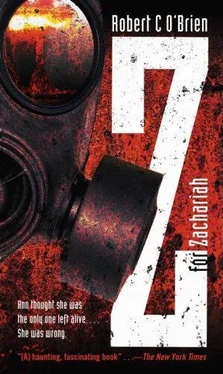
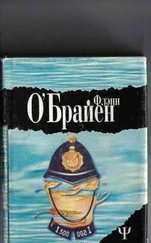
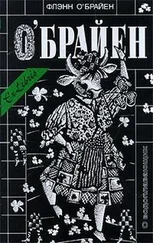
![Роберт Стайн - Дьявольская кровь на завтрак [Monster Blood For Breakfast!]](/books/27867/robert-stajn-dyavolskaya-krov-na-zavtrak-monster-thumb.webp)
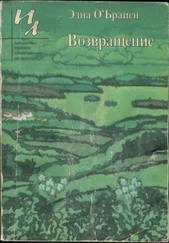
![Роберт Баден-Пауэлл - Искусство скаута-разведчика[Scouting for boys ; Искусство Разведки для мальчиков]](/books/70572/robert-baden-pauell-iskusstvo-skauta-thumb.webp)
